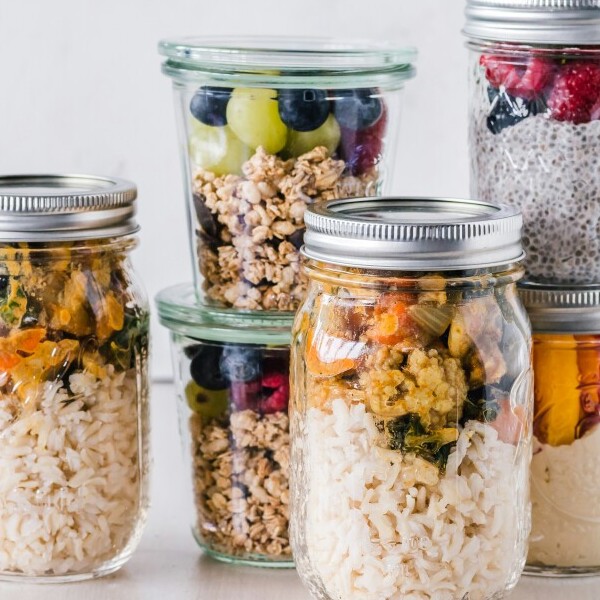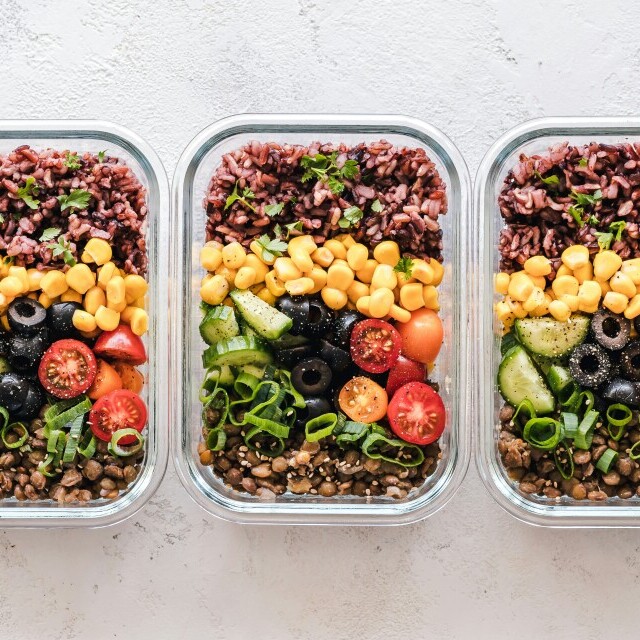 Meal prep is like the secret weapon for folks leading packed lives. Who wouldn’t want to skip the daily struggle of deciding what’s for dinner only to settle on takeout? It’s not just about saving time; it’s about taking control of what goes on your plate every day.
Meal prep is like the secret weapon for folks leading packed lives. Who wouldn’t want to skip the daily struggle of deciding what’s for dinner only to settle on takeout? It’s not just about saving time; it’s about taking control of what goes on your plate every day.
Ever hear that meal prepping is boring or that it takes too long? That’s a misconception. Once you get the hang of it, you’ll see it’s more about smart planning than it is about slaving away in the kitchen for hours. Top nutritionists agree, it’s consistency that really brings the magic to meal prep.
One of the best things meal prepping does is cut down on decision fatigue. By planning your meals ahead, you’re choosing health every day, without the daily hassle. This might sound like a small win, but reducing those daily decisions can lower stress, leaving more brainpower for things that matter. Plus, you’re less likely to reach for unhealthy snacks when your meals are already sorted.
Nutritionists are all about promoting consistency in meal prep because it lets you take charge of your health journey. Those small, repeated actions add up over time. It gives you a solid foundation to stand on when juggling everything else in life.
In a world full of quick fixes, meal prep stands out as a sustainable route to better choices. Think of it as investing in your future—making thoughtful choices now that reap benefits later. It’s about nurturing good habits with the added bonus of saving both time and money in the long run.
Building a Balanced and Nutrient-Rich Meal Plan
Getting the right balance in your meals isn’t just good advice—it’s key. Nutritionists lay out a clear formula: proteins, fats, and carbs create meals that fuel your energy and aid recovery while keeping your body in top form. Sprinkle in fiber, vitamins, and minerals to achieve that powerhouse plate.
Mixing it up with a variety of food groups ensures you’re not missing out on essential nutrients. Include whole grains, lean proteins, veggies, and healthy fats for a well-rounded diet. Throw in a colorful range of fruits and vegetables to keep your meals exciting and nutritionally complete.
Portion control is one of those things that could easily slip past. Mindful eating helps regulate how much you eat, reducing the likelihood of overindulgence. Nutritionists emphasize listening to your body’s hunger cues, which can help you recognize when you’re actually full instead of just finishing what’s on your plate.
Experts advise including nutrients vital to your well-being. These include omega-3 fatty acids, which are great for heart health, antioxidants for fighting inflammation, and an adequate amount of protein for muscle maintenance. Crafting meals with these elements in mind keeps you aligned with your health goals.
When meal planning, remember that eating isn’t just a necessity, it’s a chance to explore diverse cuisines and ingredients. A healthy lifestyle thrives on creativity and flexibility, allowing new flavors and combinations to enrich your diet while keeping boredom at bay.
Efficiency and Innovation: Tools and Techniques for Modern Meal Prep
Kitchen gadgets are where efficiency meets excitement in meal prepping. A trusty set of sharp knives, a reliable chopping board, and containers that stack easily can make prep feel less like a chore and more like a culinary adventure. Then there’s the game-changer: a meal prep app on your phone to keep track of recipes and shopping lists.
Leading nutritionists share new techniques that revolutionize meal prep. Batch cooking plays a huge part here—cooking grains or proteins in bulk can save serious time during the week. Flash freezing portions means no dull leftovers, just fresh meals every time you reheat.
Time-saving hacks are everything. Pre-chopping veggies or marinating proteins the night before can slash cooking times. And spending a quick 90 minutes on the weekend getting your prep ducks in a row can set you up for a win during hectic weekdays, ensuring the fridge is stocked with ready-to-go components.
Grocery shopping can be more deliberate when meal prepping. Keeping a running list every time you use up staples like rice or olive oil avoids those emergency dashes to the store. This kind of organized chaos leads to a smooth prep process, further reducing stress and waste.
This methodical, yet innovative approach to meal prep not only saves time but also keeps your nutrition goals on target. It’s about finding that sweet spot where discipline meets creativity, turning cooking into something you look forward to rather than an obligation.
Personalizing Meal Prep for Unique Dietary Needs
Meal prep isn’t one-size-fits-all, and that’s what makes it great for everyone. Whether you’re vegan, vegetarian, or have specific dietary needs, customizing meals ensures you get everything you need without feeling restricted. Combining nutrition with personal preferences keeps meal prep fun, not a chore to trudge through.
When dealing with allergies or intolerances, meal prepping becomes a powerful ally. Knowing exactly what’s going into your meals means peace of mind. Consulting with a dietitian can provide foolproof ways to adapt recipes while ensuring all nutritional bases are covered, without accidentally sneaking in allergens.
Meal prep also aligns with fitness and weight management goals. Tailor your meals to meet your caloric and macronutrient requirements, whether you’re aiming to bulk up or tone down. Tracking your intake can help fine-tune your approach to meet those personal milestones.
It’s all about being flexible and adaptable. Your routine doesn’t have to be rigid; allow it to vary depending on what life throws your way or what your taste buds are craving. This makes meal prep sustainable long-term while matching your lifestyle and health goals.
Adjusting your meal prep strategy isn’t just about diet—it’s about personal growth and enjoying the process of nourishing your body, whatever path you’re on.
Sustainability and Mindful Practices in Meal Preparation
Zero-waste strategies can elevate your meal prep, making it not only beneficial for you but also for the planet. Start by planning meals based on what’s already lurking in your pantry or fridge to cut down on waste. It’s amazing how creative you can get with the ingredients you’ve got on hand.
Let’s talk eco-friendly packaging. Ditch the single-use plastic in favor of reusable containers, beeswax wraps, or glass jars. Not only are they better for the environment, they’re more durable and let’s be honest, kind of stylish too.
Sourcing your food wisely is another step towards more sustainable prep. Buying local and seasonal produce means fresher meals while supporting community farmers. It’s about knowing where your food comes from and appreciating the process from farm to table.
Nutritionists often highlight the link between eating habits and environmental impact. Mindless consumption isn’t just a human issue—it hits ecosystems pretty hard. So when you choose to prep meals consciously, you’re making a statement about your commitment to sustainability while also taking care of your health.
Integrating sustainable practices into meal prep requires effort but brings immense satisfaction. The benefits compound: healthier meals, a healthier planet, and maybe a newfound appreciation for what it means to truly nourish ourselves and our environment.
